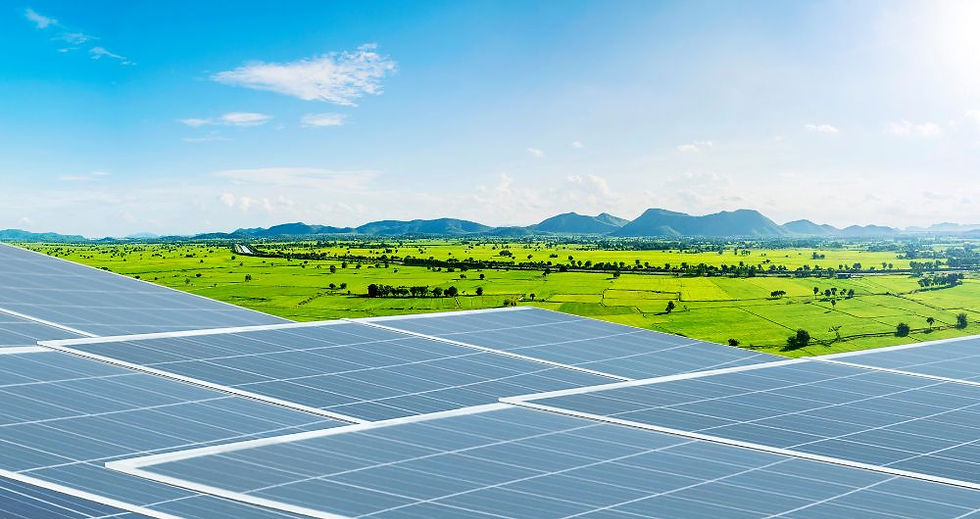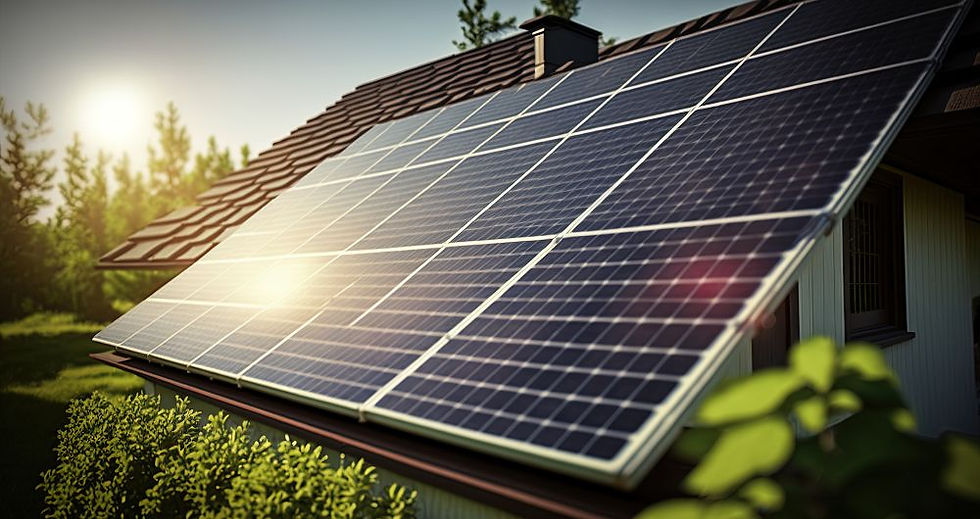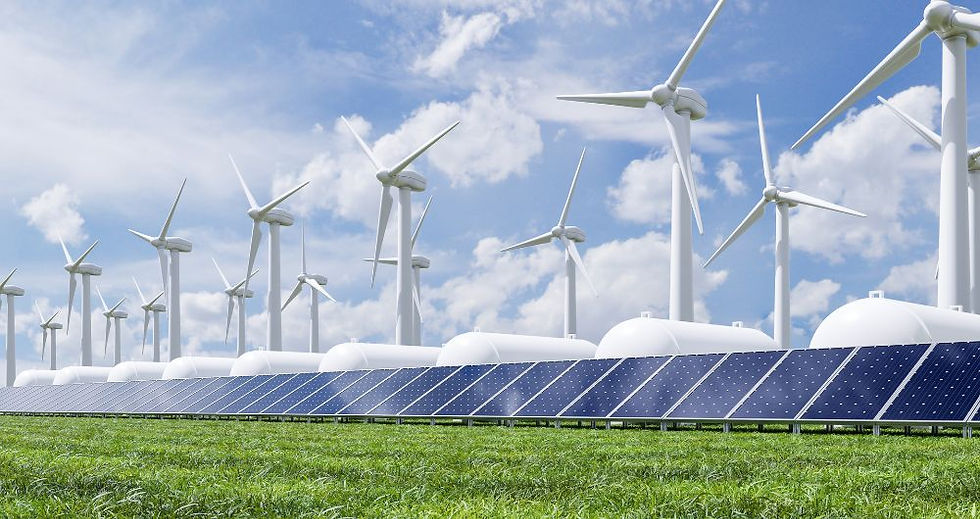How are Solar Panel Manufacturers Leading the Way to a Greener Future?
- brandon843
- Mar 20, 2024
- 9 min read

Everyone is working hard for a good future for the planet, and solar energy is becoming a key part of that effort worldwide. Solar panel manufacturers in West Hartford, CT, are leading the way, coming up with new ideas and making big changes in how we use technology to be more eco-friendly. They're leading us into a new time where we rely more on green energy and take better care of our environment. Here are other ways they help pave the way for a greener future.
Table of Contents
Introduction
Key Takeaways
Technological Innovations and Advancements
Progress in Manufacturing Processes
Economic Impacts and Accessibility
Partnerships, Collaborations, and Global Efforts
Frequently Asked Questions (FAQs)
Key Takeaways✔ Solar panel manufacturers are enhancing solar power efficiency with groundbreaking technologies. ✔ Solar panel manufacturers are implementing greener production techniques to lessen environmental impacts. ✔ The solar sector is boosting economies and making solar energy more affordable for homes. ✔ Manufacturers are partnering worldwide to speed up the shift to renewable energy. |
1. Technological Innovations and Advancements
The relentless push for innovation by solar panel manufacturers has led to significant advancements in solar energy technology. These advancements are making solar panels more efficient, environmentally friendly, and accessible to a broader audience.
Efficiency Improvements
Higher Efficiency Solar Cells: Solar panel manufacturers have made great strides in developing solar cells that can convert more sunlight into electricity. By using advanced materials like perovskite and gallium arsenide, manufacturers have significantly increased the efficiency rates of solar panels, making them more powerful and effective even in less sunny conditions.
Bifacial Solar Panels: Another innovation is the development of bifacial solar panels, which can capture sunlight from both their front and back sides. This design significantly increases the energy production capacity of the panels, making them a more lucrative investment.
Enhanced Energy Storage Solutions: Solar panel manufacturers also focus on improving energy storage technologies. Integrating cutting-edge battery storage systems with solar panels ensures that excess energy produced during sunny periods can be stored and used when sunlight is unavailable, enhancing solar power's reliability and usability.
Solar Tracking Systems: Implementing solar tracking systems allows solar panels to follow the sun's path across the sky, optimizing energy capture throughout the day. This technology boosts the efficiency of solar energy systems by a considerable margin compared to stationary installations.
Thin-Film Solar Panels: The development of thin-film solar panels represents a significant advancement in solar technology. These panels are lighter and more flexible than traditional silicon-based panels and less expensive to produce. Solar panel manufacturers are exploring using materials like cadmium telluride and amorphous silicon to make solar energy more accessible and cost-effective.
Materials and Production
Green Production Practices: Leading solar panel manufacturers are adopting greener production methods. This includes using recycled materials in manufacturing and reducing the energy consumption and waste produced during production, thereby minimizing the environmental impact of solar panel production.
Advanced Semiconductor Materials: The exploration and utilization of new semiconductor materials, such as perovskite, have opened up possibilities for creating solar panels with higher conversion efficiencies and lower manufacturing costs. These advancements could significantly reduce the payback time for solar energy systems.
3D Printing Technology: Some solar panel manufacturers use 3D printing technology to produce solar cells and components. This approach speeds up the production process and allows for more complex designs to capture sunlight more efficiently.
Eco-Friendly Solar Cells: Efforts are being made to develop organic and hybrid solar cells, which use less toxic materials and offer an environmentally friendly alternative to traditional silicon-based cells. These new types of solar cells promise to be more green and easier to recycle.
Robotic Automation: Automation and robotics have been integrated into the production lines of solar panels, enhancing precision and efficiency. This not only improves the quality and consistency of solar panels but also helps reduce production costs, making solar energy more affordable.

2. Progress in Manufacturing Processes
Solar panel manufacturers are integral to the renewable energy sector's push for green energy, not just in the energy their products generate but also in the methods used to produce them. Here are detailed insights into how these efforts are being realized:
Reduction of Carbon Footprint
Renewable Energy in Production: Leading solar panel manufacturers prioritize using renewable energy sources, such as solar and wind, to power their manufacturing plants. This direct use of green energy significantly reduces the carbon footprint of producing solar panels.
Energy-Efficient Manufacturing Facilities: Innovations in facility design, including better insulation, natural lighting, and energy-efficient machinery, have become a focus. These improvements in the manufacturing environment reduce the overall energy demand, further decreasing the carbon emissions of solar panel production.
Supply Chain Optimization: Solar panel manufacturers are reducing the carbon footprint associated with transporting materials by optimizing supply chains. This involves sourcing materials locally choosing suppliers and committing to green practices.
Lifecycle Analysis: Many solar panel manufacturers conduct comprehensive lifecycle analyses of their products to understand and minimize their environmental impact from production to disposal. This holistic approach ensures that every stage of the product's life contributes as little to carbon emissions.
Green Certifications: Pursuing and achieving green certifications has become a goal for solar panel manufacturers. These certifications, such as ISO 14001, validate a company's commitment to reducing its environmental impact and adhering to international standards for environmental management.
Waste Management and Recycling
Zero-Waste Policies: Solar panel manufacturers are increasingly adopting zero-waste policies to reuse or recycle all waste produced during manufacturing. This approach significantly reduces landfill waste and promotes a circular economy within the industry.
Recycling Programs for Solar Panels: Manufacturers are establishing recycling programs for solar panels to recognize the need for end-of-life management of their products. These programs ensure that valuable materials like silicon, silver, and aluminum are recovered and reused.
Innovative Material Recovery Techniques: Advances in material recovery techniques are enabling solar panel manufacturers to separate and recycle components of old or damaged panels efficiently. This reduces waste and supplies raw materials for new panels, closing the loop on production.
Eco-friendly Packaging: Shifting to eco-friendly packaging materials and designs minimizes waste from the outset. Manufacturers are choosing recyclable or biodegradable packaging options and reducing unnecessary packaging to reduce environmental impact.
Partnerships for Green Energy: Collaboration with environmental organizations and participation in global green initiatives help manufacturers stay at the forefront of waste management and recycling practices. These partnerships often lead to innovative solutions that benefit the industry and the environment.
Water Use and Conservation
Water Recycling Systems: Solar panel manufacturers are implementing water recycling systems within their facilities to minimize water use. These systems clean and reuse water multiple times, significantly reducing the consumption of this valuable resource.
Rainwater Harvesting: Some manufacturers have started to install rainwater harvesting systems to collect and use rainwater for manufacturing processes. This conserves water and reduces the reliance on municipal water supplies.
Dry Manufacturing Processes: Innovations in manufacturing technology have led to dry processes that eliminate the need for water. By adopting these methods, manufacturers are significantly reducing their water footprint.
Efficient Cooling Systems: For processes that require cooling, manufacturers are turning to more efficient cooling technologies that use less water. These include closed-loop systems and air-cooling techniques that are greener than traditional water-cooled systems.
Water Stewardship Programs: Solar panel manufacturers are engaging in water stewardship programs to protect local water resources and ensure their green use. This involves assessing water risk, implementing conservation measures, and collaborating with local communities and organizations.
3. Economic Impacts and Accessibility
Solar panel manufacturers are at the heart of the renewable energy industry's economic transformation. Their work leads to the production of greener energy, drives economic benefits, and makes solar power more accessible to a wide range of communities. Here's a closer look at these contributions:
Job Creation and Economic Growth
Expanding Workforce: Solar panel manufacturers are significant job creators. As demand for solar energy grows, so does the need for skilled manufacturing, installation, maintenance, and sales workers. This expansion contributes to local and national economies by creating various employment opportunities.
Investment in Research and Development (R&D): Solar panel manufacturers' commitment to R&D stimulates economic growth by fostering innovation. Investments in new technologies and manufacturing processes lead to advancements in solar energy and attract venture capital and government funding, further boosting the economy.
Strengthening Local Economies: By establishing manufacturing plants and sales offices, solar panel manufacturers can profoundly impact local economies. They increase demand for local services and contribute to the development of regional supply chains, enhancing overall economic activity.
Export Opportunities: As leaders in solar technology, manufacturers can export their products and expertise worldwide. This opens new markets and revenue streams and positions them as key players in the global transition to renewable energy.
Driving Down Costs: Through economies of scale and technological advancements, solar panel manufacturers continuously drive down the cost of solar energy. This makes solar energy more competitive with traditional energy sources and stimulates further investment in the sector.
Making Solar Energy Accessible
Affordable Solar Solutions: Solar panel manufacturers are working to make solar energy more affordable for consumers. By reducing production costs and offering financing options, they're making solar installations more accessible to homeowners.
Community Solar Projects: Manufacturers are increasingly involved in community solar projects, which allow people who may not have suitable roofs for solar panels to invest in solar energy collectively. This approach democratizes access to solar energy, particularly benefiting renters and those in urban areas.
Government Partnerships and Incentives: Manufacturers' key strategy is to collaborate with governments to secure incentives for solar energy adoption. These incentives, such as tax credits and rebates, lower the barrier to entry for new customers, expanding the market for solar energy.
Educational Initiatives: By investing in education and outreach, solar panel manufacturers are raising awareness about the benefits of solar energy and how to access it. These initiatives help demystify solar technology for the general public, fostering a more informed and engaged consumer base.
Innovative Product Offerings: Solar panel manufacturers are developing innovative products, such as integrated solar roofing tiles and portable solar generators, to meet consumers' diverse needs. These products expand the use cases for solar energy and cater to markets that traditional panels might not serve.

4. Partnerships, Collaborations, and Global Efforts
Solar panel manufacturers in West Hartford, CT, actively seek and participate in various partnerships and collaborations to enhance the development, deployment, and acceptance of solar energy globally. These cooperative efforts address technical, economic, and social barriers to solar energy adoption.
Industry Collaborations
Joint Research and Development (R&D): Solar panel manufacturers often collaborate with universities and research institutions to push the boundaries of solar technology. These partnerships result in breakthroughs that improve the efficiency, durability, and affordability of solar panels, benefiting the industry.
Supply Chain Integration: Solar panel manufacturers are creating more resilient and green supply chains by partnering with suppliers and distributors. These collaborations ensure the timely and efficient delivery of high-quality materials, reducing production costs.
Standardization Efforts: Collaborating on standardizing solar panel components and installation procedures helps streamline production and deployment processes. These efforts, often undertaken with industry associations, facilitate market growth and ensure consumer safety and satisfaction.
Public-Private Partnerships: Public-private partnerships allow solar panel manufacturers to access government incentives, subsidies, and funding for large-scale solar projects. These collaborations can significantly lower the cost of solar energy, making it more competitive with traditional energy sources.
Cross-Industry Innovations: Partnerships with companies from other sectors, such as battery manufacturers and smart home technology providers, enable solar panel manufacturers to offer integrated renewable energy solutions. These innovations enhance the appeal and functionality of solar energy systems for consumers.
Global Expansion and Market Dynamics
International Market Entry: Solar panel manufacturers are expanding their reach by entering new international markets. This global expansion is facilitated through strategic partnerships, adapting products to meet regional requirements, and navigating different regulatory landscapes.
Global Supply Chains: Manufacturers are developing global supply chains that optimize production and distribution efficiency worldwide. This approach allows for the cost-effective scaling of solar panel production, making solar energy more accessible in diverse markets.
Multinational Collaborations: By participating in multinational collaborations, solar panel manufacturers contribute to global efforts to increase renewable energy use. These collaborations often involve sharing best practices, technological exchanges, and joint ventures to tackle shared challenges.
Addressing Energy Poverty: Solar panel manufacturers are involved in initiatives to address energy poverty in developing countries. By partnering with NGOs and international organizations, they provide affordable and green solar solutions to communities lacking access to reliable electricity.

Frequently Asked Questions (FAQs)
How do manufacturers' advancements in solar technology affect the lifespan of solar panels?
Advancements in solar technology by manufacturers positively impact the lifespan of solar panels. Innovations in materials and production techniques have led to more durable and resilient solar panels that can withstand harsh weather conditions and degrade slowly, ensuring a longer productive life and better long-term investment for consumers.
Can solar panel manufacturers ensure the ethical sourcing of materials?
Many solar panel manufacturers are committed to ethical sourcing. They implement strict supply chain standards and partner with suppliers who adhere to responsible mining and labor practices. This commitment helps minimize the environmental and social impacts associated with the extraction and processing of raw materials used in solar panel production.
What future trends are solar panel manufacturers focusing on to enhance solar energy adoption?
Solar panel manufacturers are focusing on several future trends to enhance solar energy adoption, including integrating solar panels with building materials, developing more aesthetically pleasing designs to appeal to a broader range of consumers, and reducing installation and maintenance costs.
What impact do government policies have on solar panel manufacturers and the solar energy market?
Government policies significantly impact solar panel manufacturers and the solar energy market. Policies such as subsidies, tax incentives, and feed-in tariffs can greatly enhance the economic viability of solar energy, encouraging investment in solar technology development and deployment. Conversely, tariffs on imported solar components can increase manufacturers' costs and slow down market growth.
Are solar panel manufacturers making solar energy more accessible in remote or underdeveloped areas?
Yes, solar panel manufacturers are making strides to make solar energy more accessible in remote or underdeveloped areas. Manufacturers can provide renewable energy options to communities that lack access to traditional electricity grids by developing portable, durable, and low-cost solar solutions.
Shine Brighter with Ion Solar Pros!
As we look towards a greener future, the importance of transitioning to renewable energy sources becomes increasingly clear. Choosing the right partner is essential for homeowners looking to switch to solar. iSP offers personalized solutions that cater to your home's specific energy requirements and architectural considerations. Our team of experts is dedicated to guiding you through every step of the process, ensuring a seamless transition to solar energy.
Contact us today and take the first step on your solar journey.






